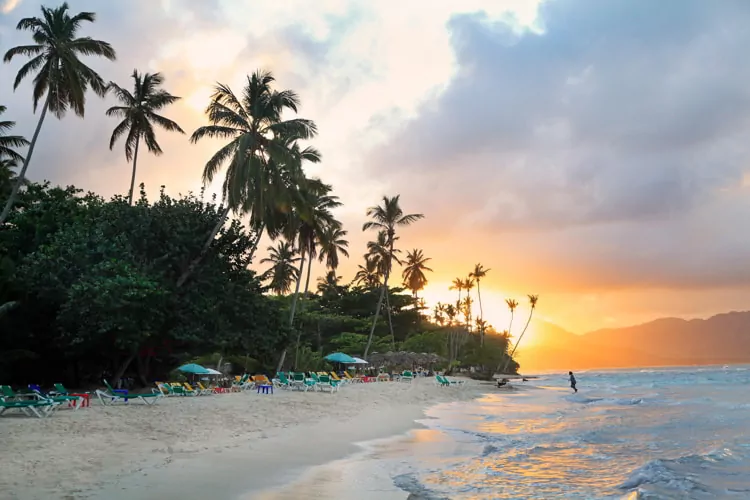
Dominican Republic: Top Choice To Get A Second Passport
Best Residency-For-Citizenship Program Going
The Dominican Republic is right now a land of opportunity.
This country is among the best places to buy real estate in 2017, and certain areas in this country are the absolute best places to be shopping for affordable beachfront retirement digs and a great place to think about buying to let. Net rental yields can stretch into the double digits.
In addition, you could put some money into a CD with a bank in this country to earn as much as 5% for U.S. dollars and double digits on a Dominican Republic peso deposit.
Furthermore, this is a destination where you can easily obtain residency and quickly get a second passport.
Dominican Republic Residency, Citizenship, And Passport

While many have touted the Dominican Republic as a place for an “instant” passport, this country does not offer an economic citizenship program. Believe any tout telling you otherwise, buy a passport through him, and you’ll end up with a worthless document that will get you into trouble if you try to use it. The small Caribbean island of Dominica has an economic citizenship program, but that’s a different country (in case you’re confused).
Meantime, the Dominican Republic does offer a naturalization-through-residency program that comes with one of the shortest times to a second passport of any such program currently available. This is a big plus. Obtaining a second passport through residency can take up to 10 years or longer.
In the Dominican Republic, you can apply for citizenship after just two years of permanent residency. You have to be a temporary resident for five years before you’re able to apply for permanent residency… unless you qualify as a pensionado, a rentista, or an investor, in which case you can obtain permanent residency status right away. Again, this allowance makes the DR a very competitive option.
The income threshold for a retiree with a pension is US$1,500 per month plus another US$250 per month for each dependent. That’s a bit more than the average U.S. Social Security payment (currently US$1,328 per month for an individual). You can qualify as a rentista with proof of income of at least US$2,000 a month.
The investor option in this country requires an investment of US$200,000 in a local business or “local financial instrument.” Put US$200,000 in a Dominican Republic peso CD, and you could qualify while creating an income stream that could be enough to live on.
After you’ve completed the required residency time, the application and approval process will take another six months or so. You’ll have to sit for an interview in Spanish, which you’ll need to prepare for, but, overall, the process is straightforward and less hassle than in many other jurisdictions.
On the other hand, a DR passport isn’t a great travel document. A Dominican Republic passport allows visa-free travel to only 51 countries. However, getting a tourist visa for travel to countries not on that list of 51 generally requires only that you show means and a reason to return to your home country.
If you’re in the market for a second passport in a hurry, the DR’s residency-for-citizenship program is one of your best options. The next quickest would be an economic citizenship, which would mean paying out as much as US$500,000, depending on the program.
Lief Simon
P.S. As I’ve explained, I like the Dominican Republic right now for real estate investment, for investment yield, for backup residency, and for a second passport. I also like it for lifestyle. The last time I was there I enjoyed walks on the beach, several first-class meals, cocktails with resident expats, and a morning watching our son take a surf lesson in one of the most beautiful coves I’ve seen anywhere in the world.
“Lief, what happens if someone lives in three different countries during a year for less than the required amount to be declared a resident? Do we legally have to be a resident of a country, or can we decide not to be? For a non-U.S citizen, wouldn’t this be beneficial for tax purposes?”
C.B.
Precisely. We know many people who have organized their lives to eliminate taxes completely. For non-U.S. citizens, it can be as simple as living in a country that only taxes income from sources in that country (this would include Malaysia, Belize, and Panama). Live in one of those countries and earn your income as a consultant with clients outside that country or from an online business operating outside that country, and you can live income tax-free.
To answer your question directly, no, you do not necessarily have to be a legal resident of any country. You could move around the world as you wanted, never staying too long in any one place to trigger a residency complication. However, your home country may require you to prove legal residency elsewhere before agreeing that you’re not liable for any tax obligation there. Check with a tax expert from your home country to clarify.



